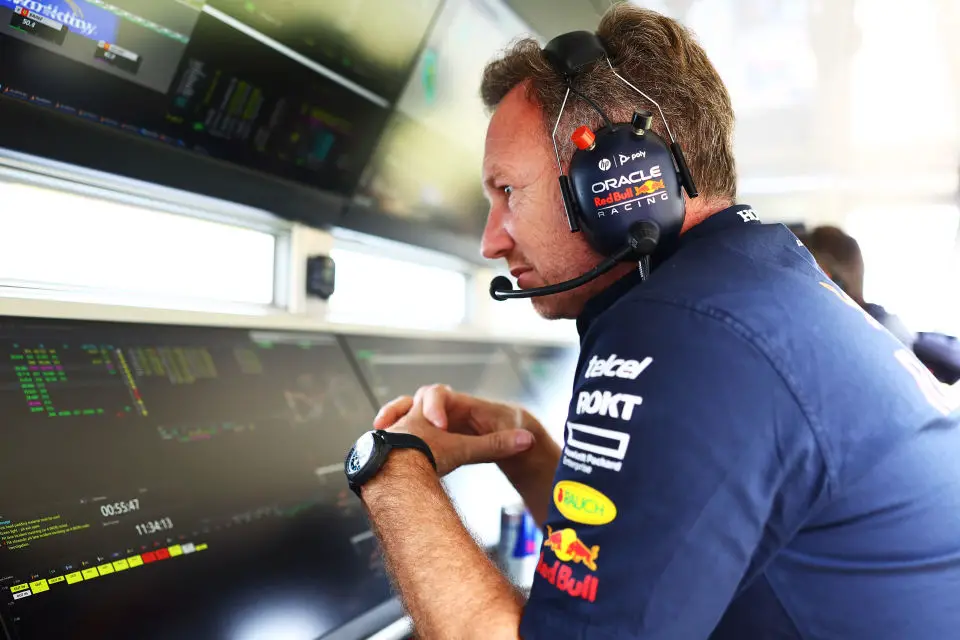F1 News: Red Bull’s Christian Horner Forecasts Challenges Ahead Due to Past Cost Cap Penalty
Red Bull Team Principal Christian Horner has revealed that the full impact of the 2021 cost cap penalty on the team’s future performance is still unclear. Despite a dominating past season, Horner suggests that the real consequences of the penalty will surface in the upcoming season, as the cost cap regulations continue to evolve.
Key Takeaways:
- Penalty’s Delayed Effect: Red Bull faced a £1.8 million penalty for exceeding the 2021 budget cap, which limited their aerodynamic development allowance. While this did not affect their performance in the previous season, with 19 wins out of 21 races, Horner believes the true impact of this penalty will be more evident with the introduction of the 2024 car.
- Strategic Development Shift: To counter the reduced development allowance, Red Bull shifted their focus early in the season to the 2024 car. This strategic move helped maintain their competitive edge despite the constraints imposed by the penalty.
- Evolving Cost Cap Regulations: The FIA’s increasing scrutiny of team finances, described by Horner as a “full colonoscopy”, reflects the growing complexity of cost cap regulations. The introduction of a power unit development cost cap in 2026 is expected to add further intricacy to the teams’ financial management and compliance.

Red Bull’s Christian Horner has shed light on the prolonged effects of the team’s £1.8 million fine and reduced aerodynamic development allowance from their 2021 cost cap breach. Despite the expiry of this penalty, and Red Bull’s dominating performance last season, clinching the constructors’ championship early and securing 19 out of 21 race wins, the full impact of the penalty is yet to unfold.
Horner indicates that the real extent of the penalty’s impact will become apparent with the debut of the 2024 car. “Certainly, you’ve not seen the full impact yet because it obviously has compromised the amount of development that we’ve been able to do this year,” he stated.
Horner further explained, “Thankfully, we came out with a very strong car at the beginning of the year and we’ve been able to apply most of that development time, from quite early in the season, to next year’s car. So that’s been important.”
This strategy is crucial for Red Bull to maintain their strong performance in the upcoming season.
The 2021 financial breach by Red Bull marked a significant moment in the history of F1’s cost cap implementation. All teams complied in 2022, and the FIA’s rigorous scrutiny underlines the evolving nature of these regulations. Horner appreciates the FIA’s efforts, stating, “The process of the cost cap is evolving,” and acknowledges the added complexities due to each team’s unique corporate structure. The upcoming power unit development cost cap in 2026 is set to further complicate this scenario.
“The FIA are learning as well from their side, and the rules have evolved,” Horner commented, highlighting the continual adaptation and learning process involved in implementing these regulations.
As Red Bull navigates the aftermath of their cost cap breach and adapts to the evolving financial regulations, the team’s ability to maintain its dominant performance in the face of these challenges remains a key point of interest. The upcoming season will be crucial in revealing whether Red Bull can continue their dominance or if the cost cap penalty will significantly alter the competitive landscape of Formula 1.


